Introduction
In the ever-evolving landscape of technology, the integration of development and operations—commonly known as DevOps—has emerged as a pivotal strategy for organizations seeking to enhance efficiency and responsiveness. This comprehensive approach not only fosters collaboration among teams but also streamlines processes to deliver high-quality software at an unprecedented pace.
As industries from finance to healthcare adopt tailored DevOps solutions, understanding its key components, benefits, and potential challenges becomes essential. This article delves into the multifaceted role of DevOps, examining its impact across various sectors, the metrics that gauge success, and the flexible engagement models available to organizations.
By exploring these elements, businesses can harness the power of DevOps to navigate digital transformations and achieve sustained success in a competitive environment.
Understanding DevOps Services: An Overview
Dev and IT operations practices encompass a collection of methods and tools aimed at improving collaboration between software development and IT operations. By nurturing a culture of collaboration and shared responsibility, the approach aims to shorten the development lifecycle while delivering high-quality software. Key components of devops development services include:
- Continuous integration and continuous delivery (CI/CD)
- Automation of testing and deployment
- Infrastructure as code (IAC)
These elements collectively facilitate rapid development cycles, enabling organizations to respond quickly to market changes and customer needs.
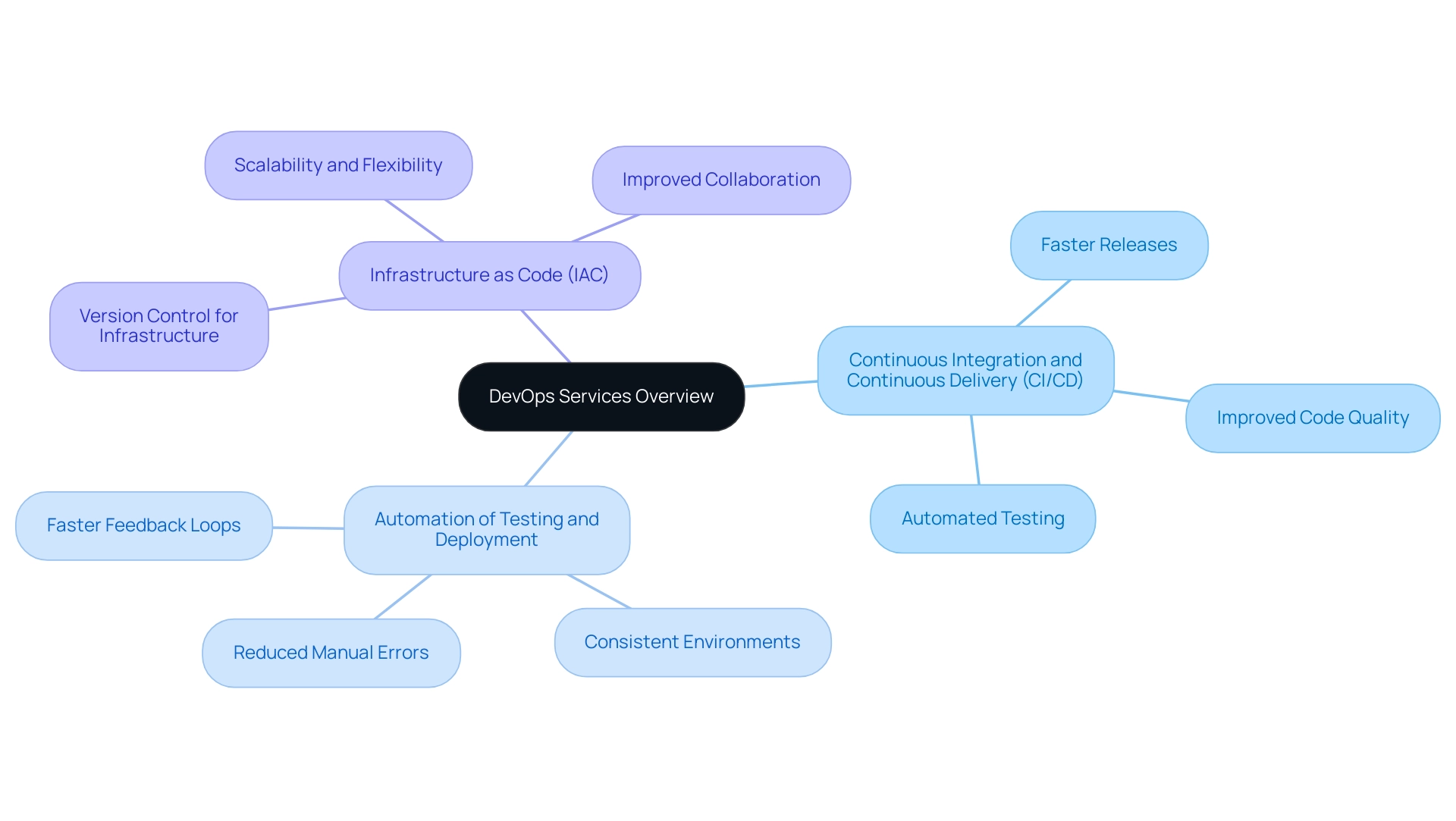
The Role of DevOps in Various Industries: Custom Solutions for Success
DevOps development services and operations practices are increasingly being adopted across various industries, including finance, healthcare, and retail. For instance, in the financial sector, companies utilize integrated development and operations to enhance security and compliance while accelerating product delivery. In healthcare, the development and operations approach facilitates the integration of patient data systems, improving service delivery and patient outcomes.
Retailers employ development and operations practices to enhance their e-commerce platforms, ensuring a seamless customer experience. Each industry benefits from tailored solutions provided by DevOps development services that address specific operational challenges, driving innovation and efficiency.
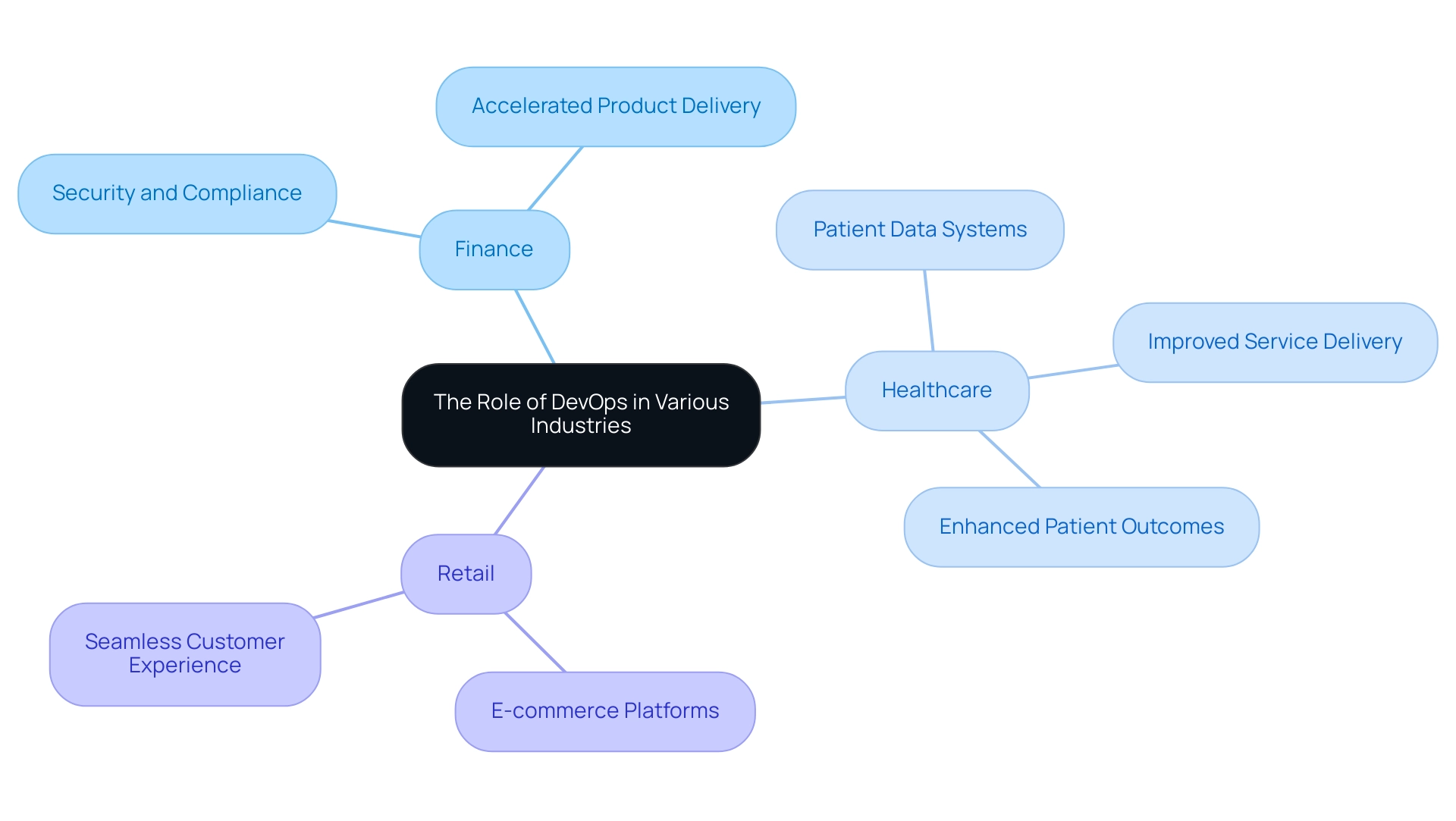
Measuring Success: The Impact of DevOps Transformations
To accurately evaluate the success of software development transformations, entities must prioritize key performance indicators (KPIs) such as:
- Deployment frequency
- Lead time for changes
- Mean time to recovery (MTTR)
- Customer satisfaction scores
For instance, Nordstrom successfully reduced its delivery time from 3 months to just 30 minutes by leveraging devops development services. Monitoring these metrics provides invaluable insights into operational efficiency and software quality.
Remarkably, a substantial decrease in lead time acts as a sign that the entity is successfully applying modern practices, which not only speeds up development cycles but also greatly improves customer satisfaction and operational agility. As Hiren Dhaduk explains, This approach enables a cultural transformation towards cooperative operations for your organization to improve the value offered to users. Moreover, the case study titled 'Leveraging Development and Operations for Sustained Organizational Success' demonstrates how devops development services can transform enterprises for improved agility and competitiveness.
By embracing these KPIs, companies can better navigate their digital transformations and position themselves for sustained success in a competitive market.
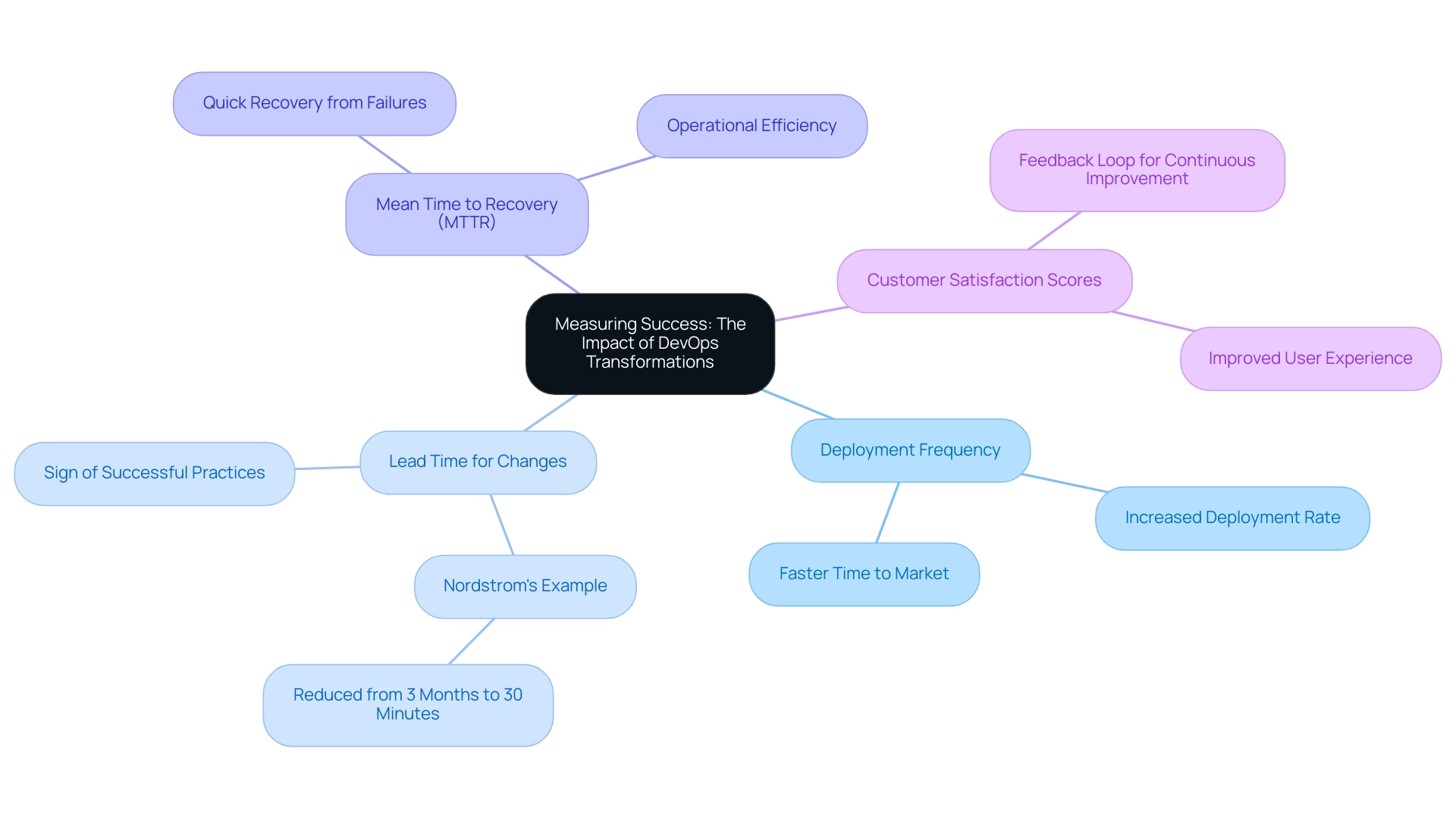
Flexible Engagement Models for DevOps Services
Organizations can select from various engagement models for development and operations, including on-premises, cloud-based, and hybrid approaches. Each model offers distinct advantages, such as cost-effectiveness, scalability, and control over data security. For example, organizations experiencing fluctuating demands find that cloud-based DevOps development services enable rapid scaling and flexibility.
Conversely, on-premises solutions may be preferred by organizations with stringent security requirements. By carefully evaluating these options, organizations can select the engagement model that aligns with their operational objectives and risk tolerance.
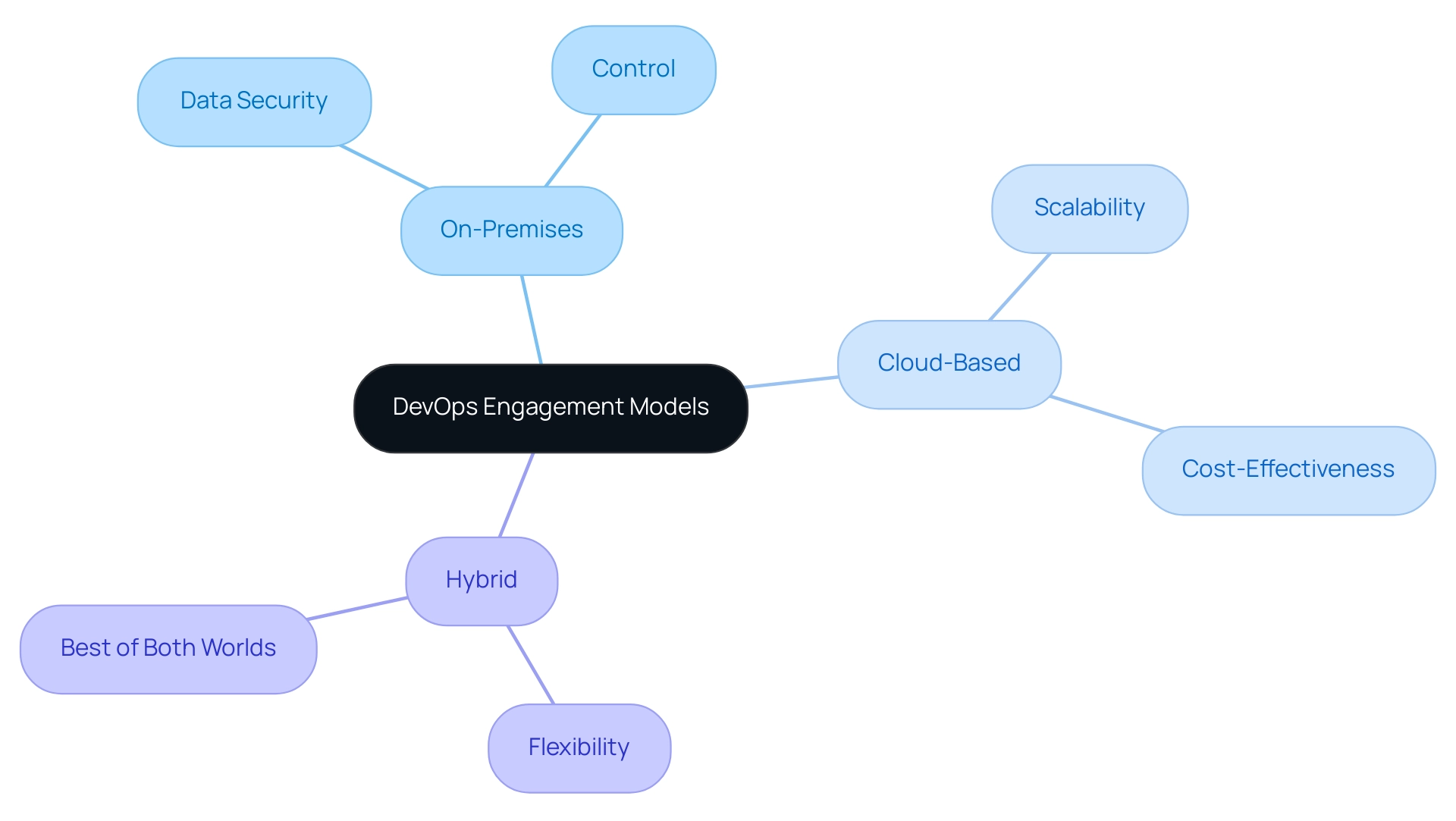
Overcoming Challenges in DevOps Implementation
Implementing devops development services can present challenges such as:
- Cultural resistance
- Lack of skills
- Inadequate tooling
Organizations often face pushback from teams accustomed to traditional silos, making it essential to foster a culture of collaboration and continuous improvement. To overcome these hurdles, businesses should invest in training programs that enhance team skills and foster a collaborative mindset.
Additionally, selecting the right tools that facilitate automation and collaboration is crucial for the successful implementation of devops development services. By addressing these challenges proactively, organizations can create a robust DevOps framework that drives efficiency and innovation.
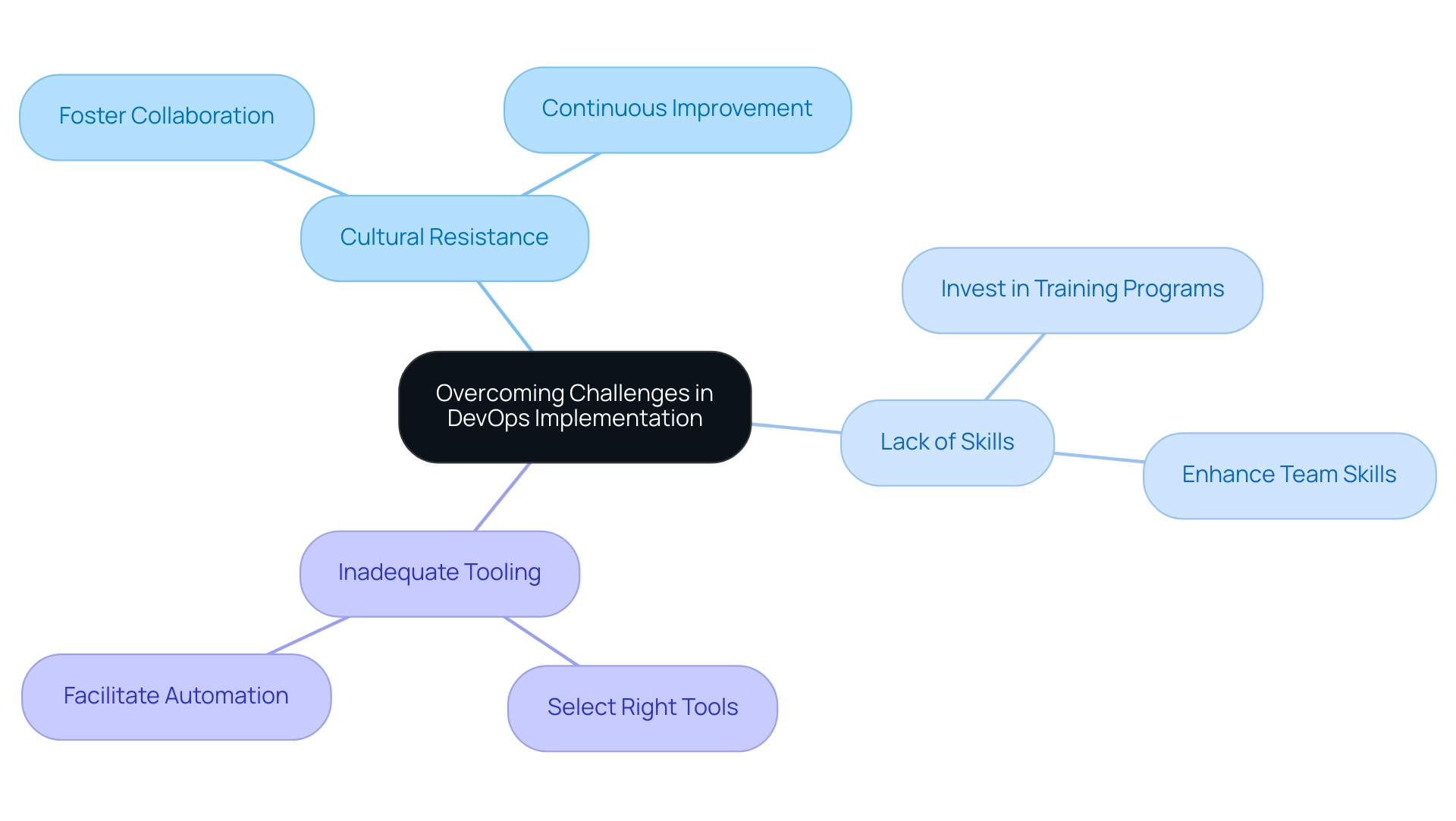
Conclusion
The integration of DevOps services represents a transformative approach to software development and IT operations, facilitating a culture of collaboration that enhances efficiency and accelerates delivery. As organizations across various industries—such as finance, healthcare, and retail—adopt tailored DevOps solutions, they experience significant benefits including improved security, streamlined processes, and enhanced customer experiences. Key components such as continuous integration and continuous delivery, along with infrastructure as code, play an essential role in this evolution.
Measuring the success of DevOps transformations through key performance indicators enables organizations to gauge their effectiveness and refine their strategies. The impressive results achieved by companies like Nordstrom underscore the potential of DevOps to reduce lead times and elevate customer satisfaction. By focusing on relevant metrics, businesses can navigate their digital transformations with agility and competitiveness, positioning themselves for sustained success in a rapidly changing market.
Moreover, the variety of engagement models available—ranging from cloud-based to on-premises solutions—allows organizations to select the best fit for their operational needs. However, the journey to successful DevOps implementation is not without its challenges. Addressing cultural resistance and investing in skill development are crucial steps in fostering an environment conducive to collaboration and continuous improvement.
In conclusion, embracing DevOps is not merely a trend; it is a strategic imperative for organizations aiming to thrive in today's competitive landscape. By understanding its core components, measuring success effectively, and overcoming implementation challenges, businesses can leverage DevOps to drive innovation and achieve operational excellence. The future belongs to those who adapt and evolve, harnessing the power of DevOps to meet the demands of a dynamic digital world.




